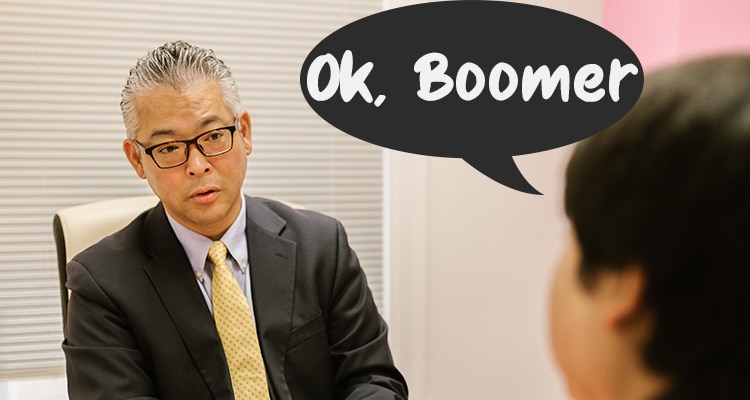‘Sup fam! Are y’all ready to see me slay discussing what each Gen Z internet slang means?
Yeah, I’ll stop.
I’m not even that old; I was born in 1998, well within the age range for Gen Zs. And yet, even I can’t keep up with the new words my generation invents. But maybe that’s just because I’m more introverted than my fellows, but that’s irrelevant here.
Keeping up with the new Gen Z words and phrases can be frustrating, especially if you’re from a different generation.
So, to help you close the generational gap and improve workplace communication, here’s a guide to some of the most common Gen Z internet slang and what they mean.

“Sana All.”
Filipino Gen Zs often use this line, both online and in-person. This is often said when they see or hear about something good happening to someone.
They say “sana all” to express harmless envy, though the expression literally means hoping that everyone is as lucky.
This phrase is often invoked when someone in your network lands a nice job, passes an exam, or spends time with a significant other.

“Slay.”
No, this has nothing to do with killing someone. It usually describes how someone is doing an excellent job.
So when you hear your Gen Z co-workers say that you “slay,” take it as a compliment.

“No Cap.”
Would you believe this slang predates Gen Z by a couple of decades? The term “cap” is an African-American slang from the 1900’s that means “to brag, exaggerate, or lie” about something.
Today’s version of “no cap” remains true to its roots, as it means “no lie” or “for real.”

“Drip.”
Ah, this one. A drip used to be slang for a dull person. However, it means the complete opposite today. If a Gen Z’er says that you have “drip,” they mean that you look very fashionable, even sexy.

“Main Character.”
Originating from TikTok, “main character” refers to the popular trend where Gen Zs post montages of their lives or reenact scenes in movies or shows.
Or it could also refer to someone that’s the subject of viral outrage on social media.

“Fire and Lit.”
One of the most common Gen Z internet slang you’ll encounter is “fire.” This usually means something is really awesome, cool, or exciting.
Like “fire,” “lit” is used by Gen Zs to describe something exciting, high-energy, or extraordinary.

“W and L.”
Tired of using the words win and loss in everyday conversations? Well, so do Gen Zs, apparently.
Instead of saying these, they’ve shortened them to “W” and “L.”

“Understood the Assignment.”
If you’ve been on Twitter lately, you may encounter this phrase referring to actors who played their roles perfectly. Or when someone makes an excellent comeback in an argument.
When a Gen Z says someone “understood their assignment,” they mean that this actor absolutely nailed the role they’re playing. Or that whatever they did was on point.

“Low-key/High-key.”
In general, low-key means quiet, easygoing, or restrained. In Gen Z slang, it means something you want to keep on the downlow, like a subtle feeling.
Conversely, people use high-key to express excitement regarding a particular topic.

“Ok, Boomer.”
First appearing in 2019, “Ok, boomer” is used by Gen Z and millennials to reply to older people who post insensitive or out-of-touch things on social media.
However, it is also used ironically to make fun of out-of-touch comments in general from people of any age group.

“Tea.”
Of course, no workplace conversation is complete without some gossip. So whenever Gen Zs want their friends to share juicy information, they say: “spill the tea.”

“Skrrt.”
Okay, I’ll admit I haven’t seen or heard this from my friends that much.
“Skrrt” is an onomatopoeia that mimics the sudden screeching halt of car tires. It is often interjected into conversations and has been around since 2015, usually by trap music fans.
Say your Gen Z co-worker doesn’t want you to share something during conversations. They might use this to stop you from spilling anything to your co-workers.

“Flex.”
Another Gen Z internet slang you may commonly encounter in social media is “flex” or “flexing.” This slang means someone is showing off and can be used positively or negatively, depending on the context.

“Canceled.”
To “cancel” someone is to stop supporting them due to their unethical behavior. People do this to “punish” these people for their wrongdoings by isolating them.
This term’s connotations vary depending on whether the person saying it supports or is against cancel culture.

Using Emojis to Convey Their Emotions.
Besides words, another way Gen Zs commute is through emojis. Emojis like 😀 and 🙁can sometimes convey more meaning than an entire paragraph.
Or, you can use it to display your emotions during group chats to make your message sound warmer.

New Words From a New Generation.
Just like living things, human language also evolves over time.
Keeping up with this rapid evolution of language may seem challenging. But by being familiar with everyday Gen Z internet slang you’ll likely encounter in your online job, you can better understand your co-workers and improve workplace communication.
And if you’re a Gen Z looking for fire remote work opportunities (yeah, I know that sounds kinda cringe), Remote Staff is the place to go. Our jobs list has various jobs you can apply to, so you’ll never run out of options. Good luck!

